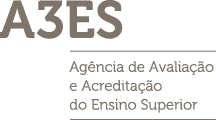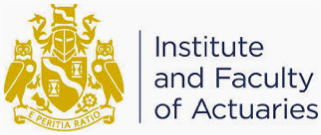
The main aim of the PhD in Economics is to provide advanced education in preparation for a position in a profession that demands a high level of technical and scientific qualification. It also enables you to pursue an international career in economics and in highly qualified roles in the public or private sector.
The scientific research that takes place in the ISEG research centres is an important element of the scientific support for this programme, with emphasis on the fields of Economics (UECE) and Applied Mathematics (CEMAPRE). It is these research centres, integrated in REM, that host the PhD students.
Target
Those who are looking for an advanced education and who wish to carry out research in Economics, in preparation for a highly qualified role in the public sector or private sector. Such a position includes university teaching and research; the leadership and management of national and international organizations; consulting; training; and research projects and studies.
Applicants for the School’s PhDs can apply for a variety of scholarships, namely FCT scholarships (granted by FCT or by ISEG research centres) and, in some cases, ULisboa scholarships. The criteria, rules and regulations for applying for scholarships are detailed on our website.
The FCT call for PhD scholarships runs from March 17 until April 16, 2025, at 5pm. For more information contact info.bolsas@fct.pt.
In some cases, PhD students can be enrolled in projects hosted by the research centres or be supported by them. For further information, contact the PhD coordinator.
For the PhD Programme in Economics, subjects of an economic nature are studied to an advanced level (Macro and Microeconomics) as well as their applications, employing mathematical, statistical, and econometric methods.
The PhD in Economics aims to provide an education that prepares PhD graduates for professional work that demands a higher degree of technical and scientific expertise, preparing them for international careers in Economics.
At the end of the 1st Year of the programme, a consolidated version of the thesis project is assessed in the Research Seminar, where alterations are suggested, and a supervisor is appointed from amongst the faculty. The processes of preparing, researching and writing a thesis last for two academic years in accordance with the Rules and Regulations for ISEG PhD Programmes.
Thesis topics can be typically related to the research of the faculty, which as been published notably in top journals such as: American Economic Review; European Economic Review; Experimental Economics; Games and Economic Behavior; Journal of Banking and Finance; Journal of Business & Economic Statistics; Journal of Econometrics; Journal of Economic Dynamics and Control; Journal of International Economics; Journal of International Money and Finance; Journal of Monetary Economics; Journal of Regional Science; Oxford Economic Papers; Public Choice.
| Year 1 – Semester 1 | Professor | Credits |
|---|---|---|
| Advanced Econometrics | Paulo Parente | 7.5 |
| Advanced Economic Mathematics | José Pedro Gaivão | 7.5 |
| Advanced Macroeconomics | Paulo Brito, Bernardino Adão | 7.5 |
| Advanced Microeconomics | Jacinto Braga, Alba Miñano-Mañero | 7.5 |
| Year 1 – Semester 2 | Professor | Credits |
|---|---|---|
| Macroeconomic Topics | Luís Costa, Sandra Gomes, António Afonso | 7.5 |
| Microeconomic Topics | Joana Pais, Ana Fernandes, Aida Tavares | 7.5 |
| Seminar | António Afonso | 7.5 |
| Elective | – | 7.5 |
| Computational Economics | Tânya Vianna De Araújo | 7.5 |
| Experimental Economics | Sandra Maximiano | 7.5 |
| Year 2 | Credits |
|---|---|
| Thesis (Research Seminar) | 60 |
| Year 3 | Credits |
|---|---|
| Thesis (Research Seminar) | 60 |
See the description of each Curricular Units here.
Applications are welcome from graduates of the ISEG Masters in Economics, the Masters in Monetary and Financial Economics, or an equivalent Masters. Applicants who have a Master’s degree or equivalent degree in another field may be admitted, but only if they have successfully studied for a syllabus similar to the syllabus of the 1st Semester of the ISEG Masters in Economics.
The selection of candidates is carried out by the Scientific Committee of the PhD Programme, based on the following criteria:
These are provisional tuition fees for 2025/26, subject to confirmation by the Universidade de Lisboa statutory bodies.
| Students from | For the 1st Year | For the following years |
| Within the European Union | € 3,000 | € 2,000 |
| Outside the European Union | € 4,000 | € 3,000 |













